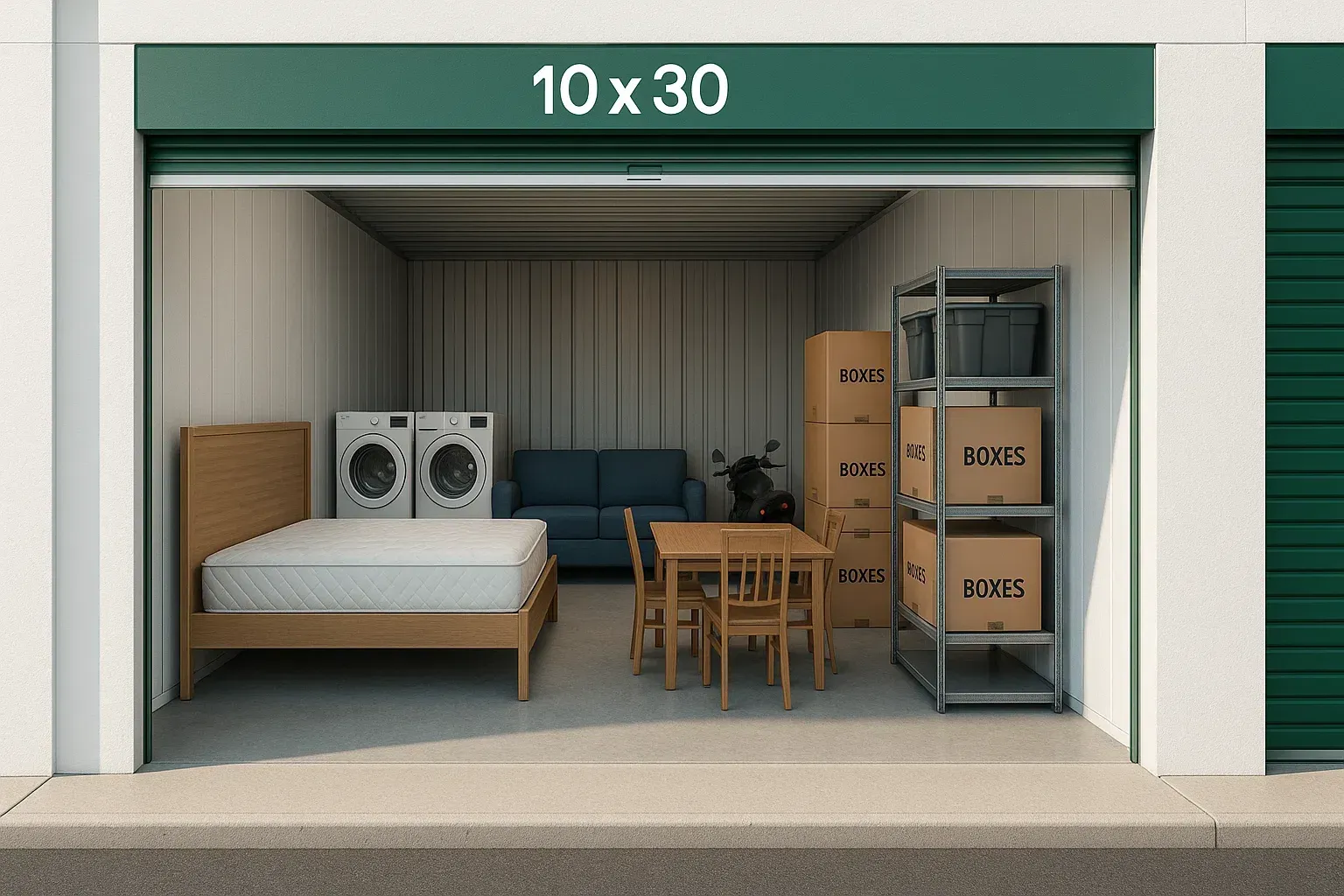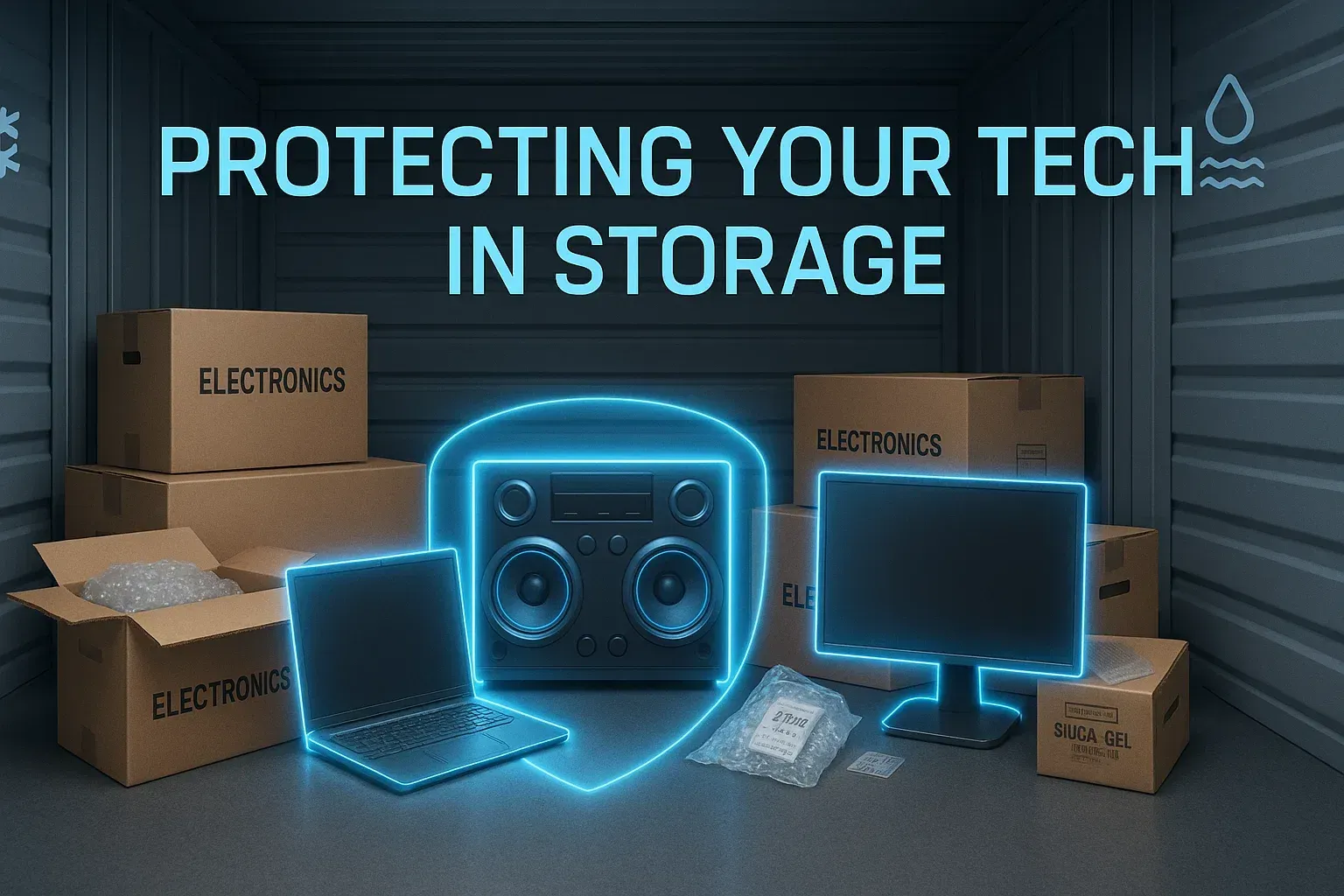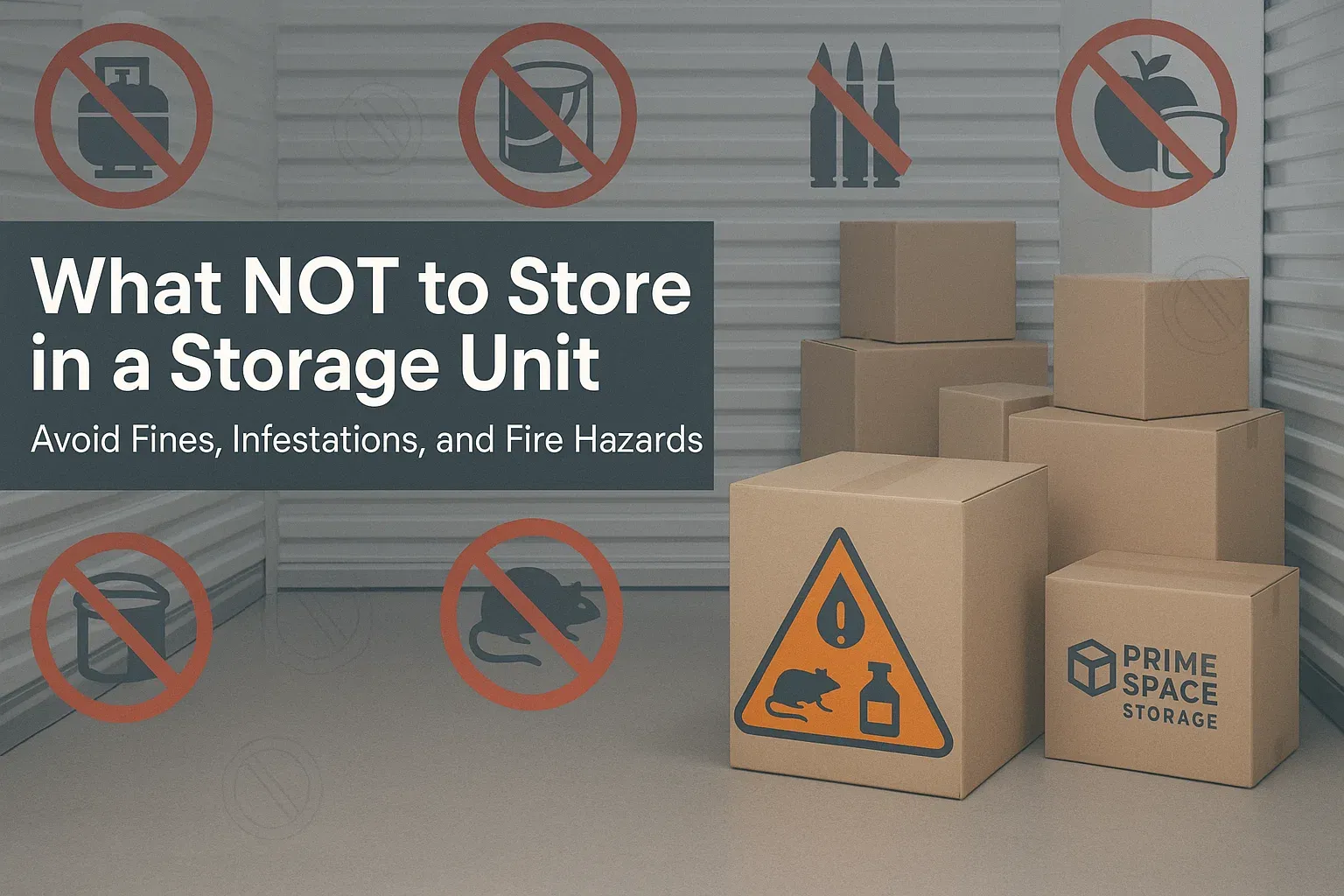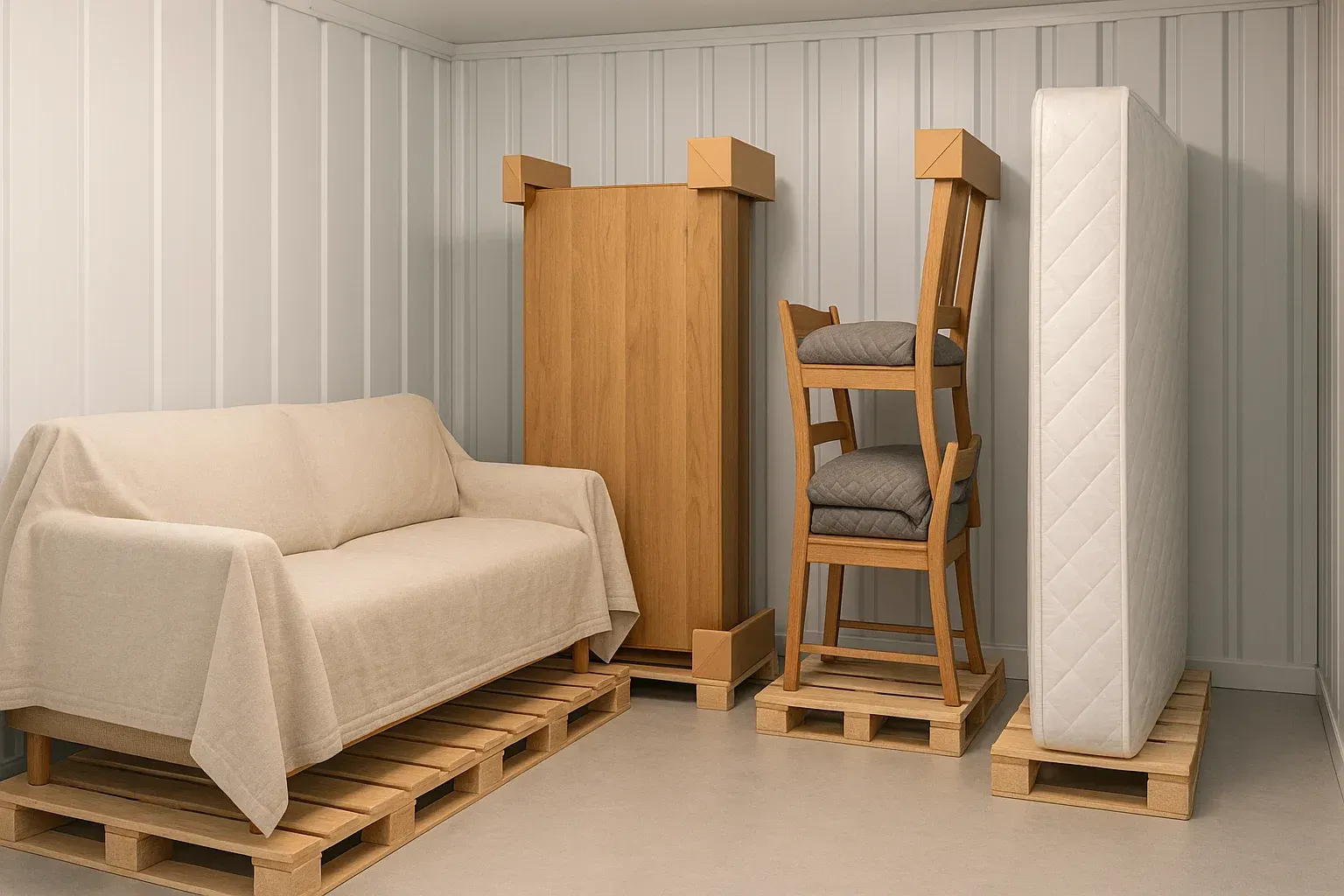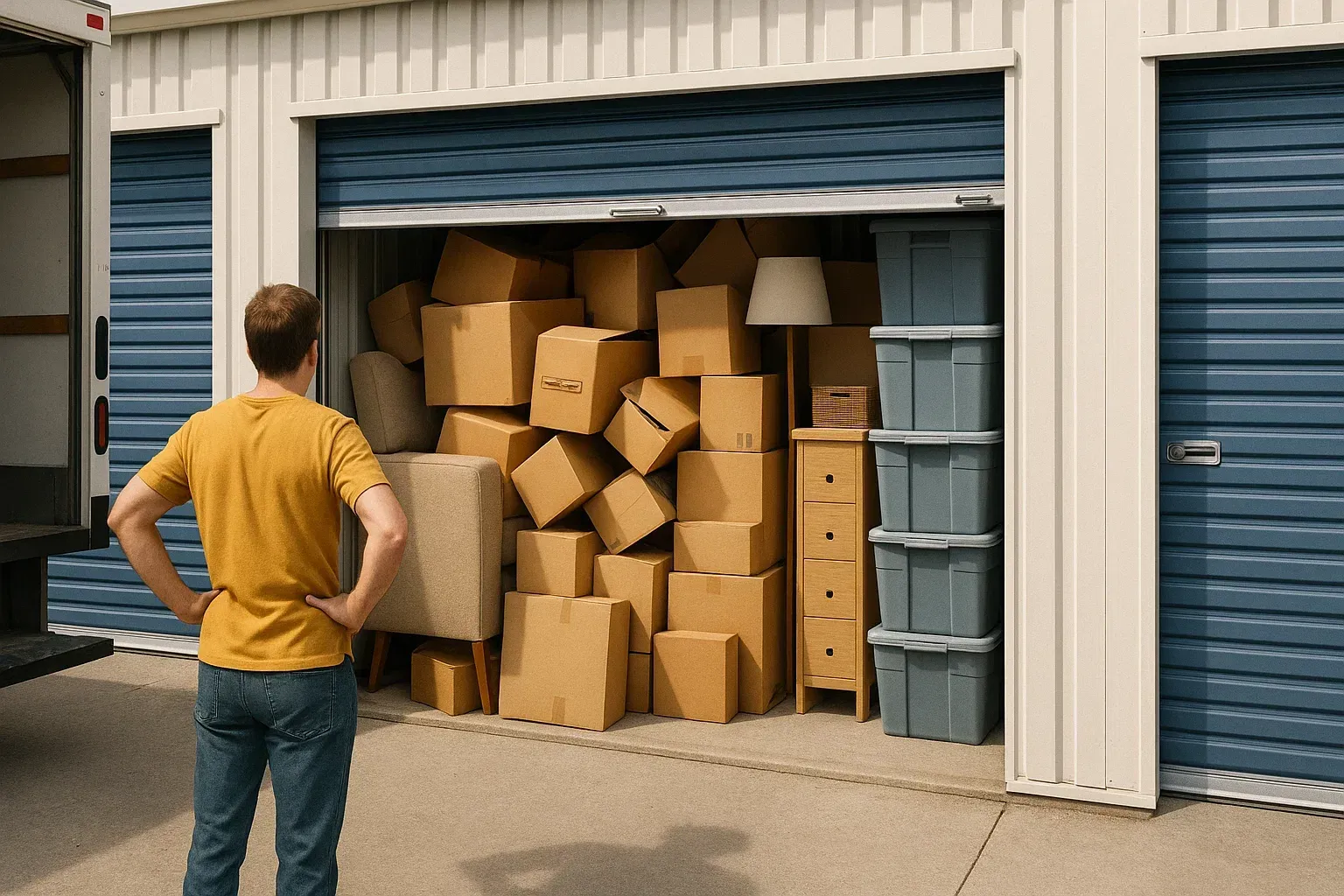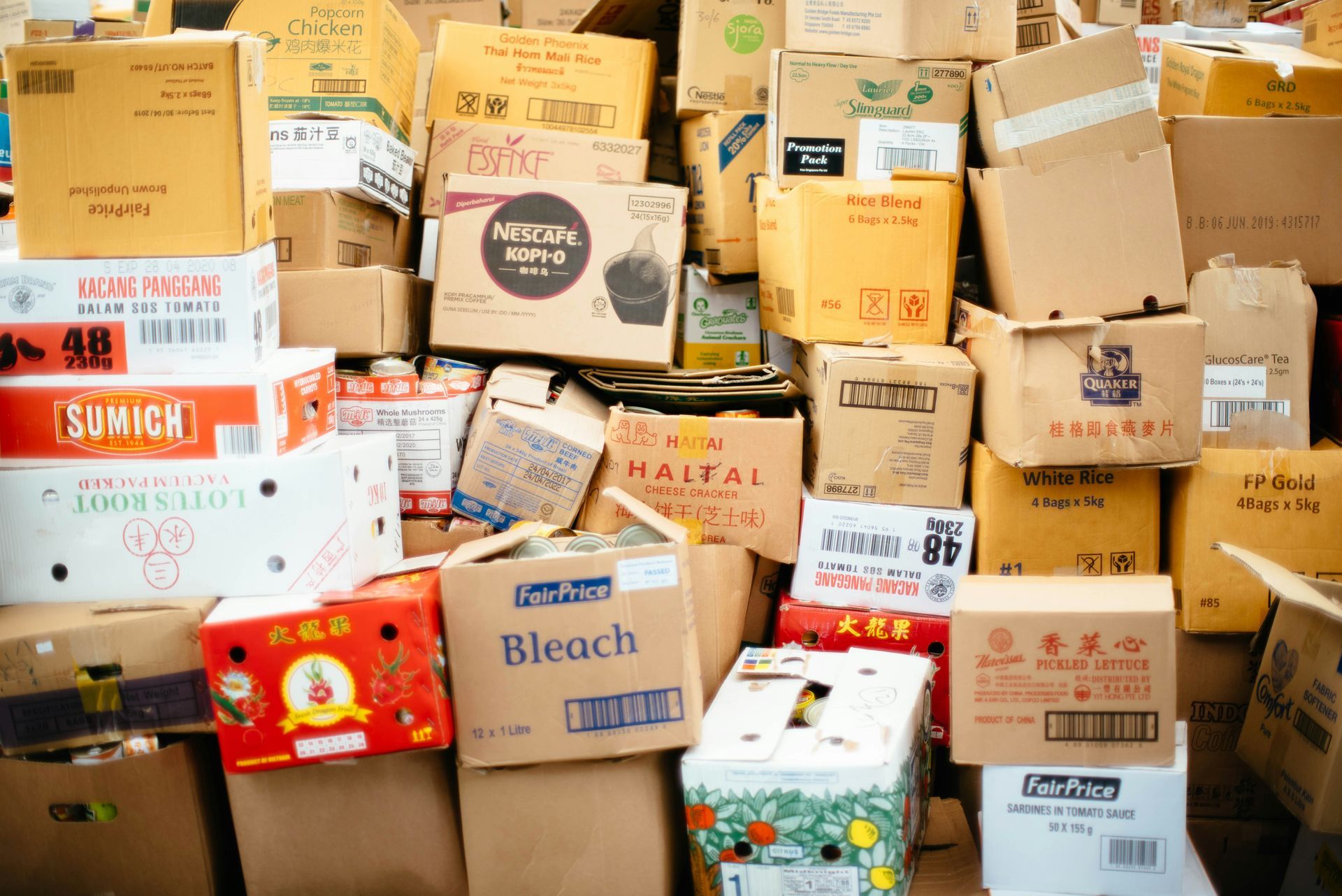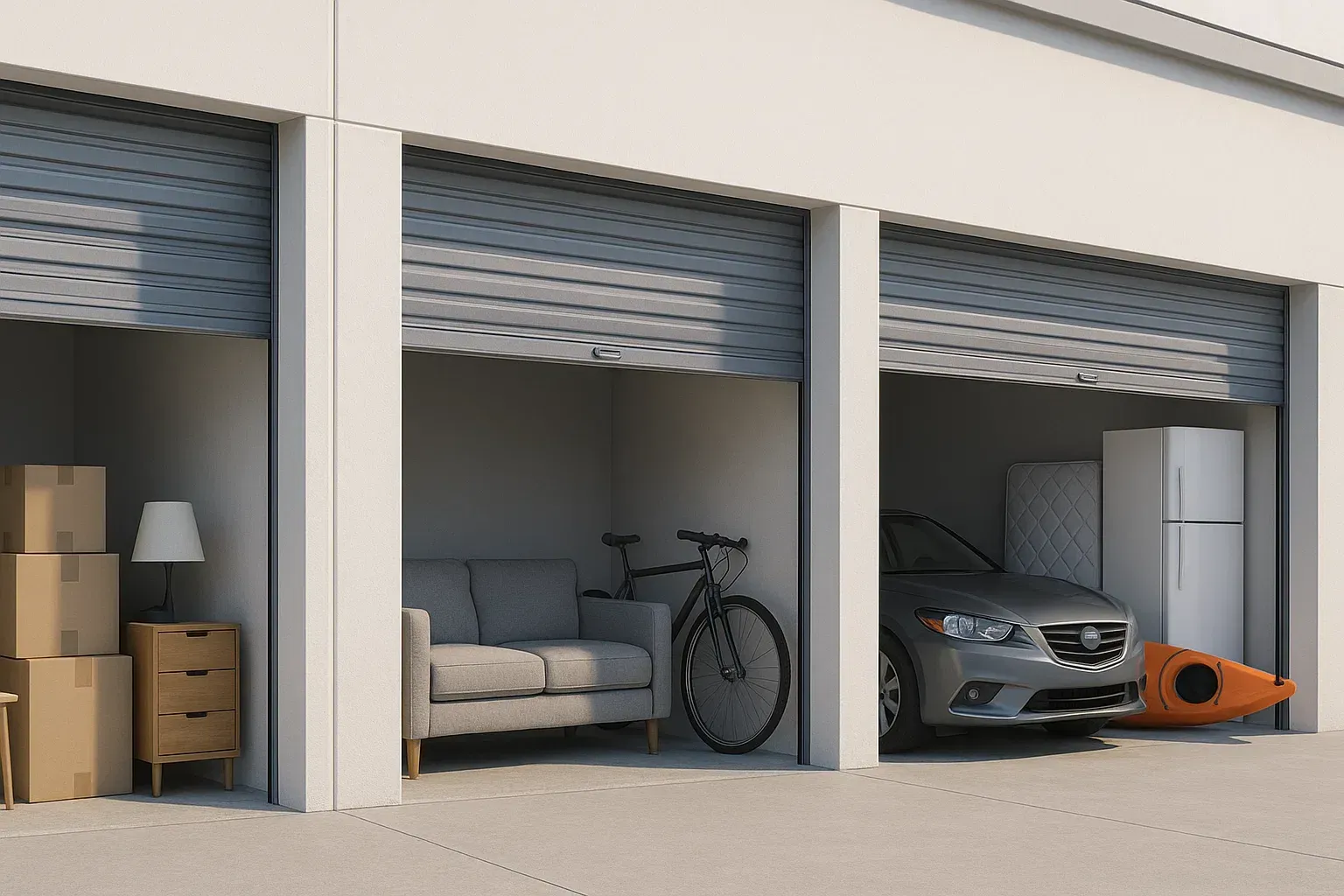Business Storage 101: How Small Businesses Use Self-Storage
Business Storage 101: How Small Businesses Use Self-Storage
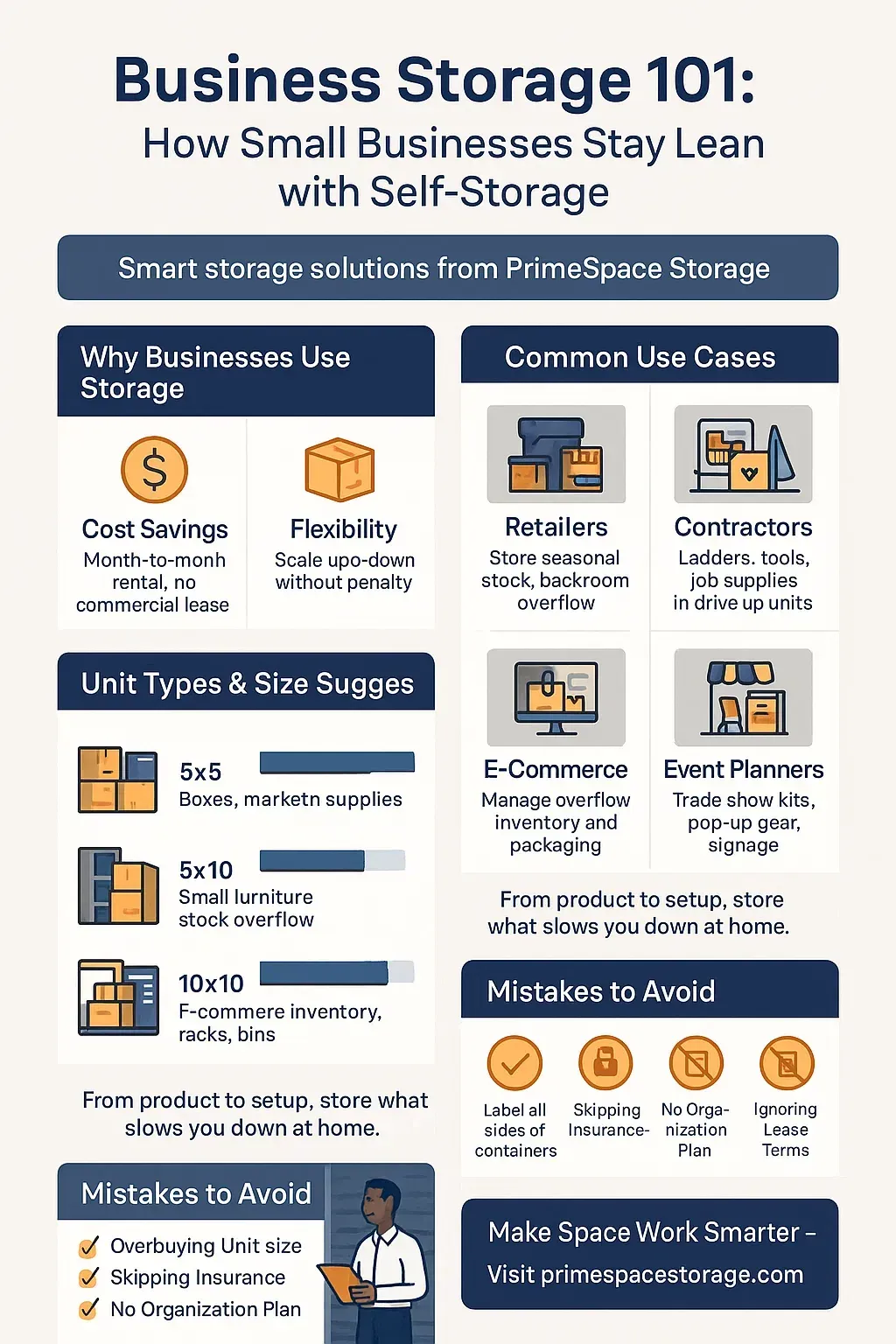
Running a small business doesn’t always feel like running a business. Sometimes it feels like trying to solve space problems in between real work. Boxes in the hallway. Tools in the trunk. Inventory in the guest room. You improvise. Until the improvising gets in the way.
A woman who sells hand-poured candles told us she used to keep her shipping supplies in her kitchen.
Labels on the stove. Boxes stacked by the fridge. She didn’t mind at first. But then she started forgetting where she put things. Started mixing up scents. That’s when she called us.
Self storage units aren’t a magic fix. But they buy you more storage. They help you stay lean without giving up what you need. And for small business owners, that functionality can change how things feel day-to-day.
Why Storage Actually Works for Business
People don’t always think of self storage as a business tool. They think of it as somewhere to keep an old couch. But it’s the same principle—just applied to inventory, gear, materials, or files instead of furniture.
Real estate’s expensive. Commercial leases even more so. A storage unit won’t give you storefront windows or foot traffic. But it gives you secure square footage. Clean, convenient, accessible space—without a long contract or overhead.
At PrimeSpace Storage, we see companies rent space for a few months, then scale up or down as needed. Self-storage units can be rented on a month-to-month basis without long-term lease commitments. No penalty. No pressure. Just business storage, when they need it.
Space Without a Lease
A 10x10 unit at one of our facilities might run $120–$150 a month. No utilities. No taxes. No
maintenance. Just a flat monthly cost.
You can store your extra stock, your seasonal overflow, your packaging station. Compared to office expansion—or even renting a small warehouse—that’s a fraction of the cost. Rental agreements are typically month-to-month, allowing small businesses to adjust as they grow.
When your needs change, you don’t get stuck with units you no longer use.
Security Without Worry
Most business owners have had something stolen. A drill left in the truck bed. A laptop in a coffee shop. You get more careful, but it wears on you. That’s why we don’t treat security as optional. PrimeSpace Storage facilities are well-lit, have 24/7 code entry access and video surveillance.
Businesses using self storage can insure valuable equipment through their own policy or ours. It’s not a guarantee. But it’s not a gamble either.
Adaptable During Business Changes
Business isn’t static. Sometimes you’re in growth mode. Sometimes you’re cutting back. Sometimes you’re stuck between a trade show and a remodel and need a place to keep things off the floor.
Self-storage services for businesses fill the gap between what you have and what you need—without making anything permanent. Organizations often use storage units to store documents securely, reducing overhead in their main offices.
What Businesses Actually Store
Retailers, contractors, e-commerce sellers, event planners. Everyone uses storage differently. But the patterns repeat.
For Retailers: Clean Front, Organized Back
Holiday gear. Extra racks. Backstock. Retail spaces get crowded fast. We’ve had clients rotate inventory seasonally so their shop floors stay clear. Some use their units like mini-distribution hubs. Packages in. Packages out. No chaos in the storefront.
Businesses can benefit from receiving packages directly at their storage location.
For Contractors: A Place for Tools to Breathe
We’ve seen painters store equipment like ladders, drop cloths, and rollers in a 5x10. Electricians line up their tools with spare conduit and panels. Carpenters bring in supplies, store spare wood, even pre-cut parts for later jobs.
Drive-up storage units provide quick access for loading and unloading. Clean, secure access helps workers stay efficient.
For E-Commerce: Between the Spare Room and a Warehouse
It’s easy to start an online business in your living room. It’s harder to grow it there. Orders increase.
Inventory grows. Customers wait longer because you're searching for things. Many e-commerce companies keep backup inventory in business storage. Others use it to prevent their own home from becoming a warehouse.
Some even use online account management tools to track what’s inside and manage SKUs efficiently.
Certain businesses benefit from inventory stickers to manage items at scale.
For Event-Based Businesses: Setups Ready to Go
Trade show booths. Pop-up signage. Folding tables. Event gear eats space. And you only need it once a month, or less.
Instead of cramming it into an office corner, businesses use self-storage to hold their entire setup.
Climate-controlled storage units can protect temperature-sensitive items like fabrics or samples.
Choosing a Unit That Works
You don’t need to get it perfect the first time. Start small. Measure what you have. Think about how often you’ll need access. Pick a unit close enough to your business location for convenience.
Many of our customers begin with a 5x10 and upgrade once they establish a system.
Features That Matter
If you’re storing data hardware, electronics, or anything sensitive, climate-controlled units are key. They protect files, fabrics, and equipment from state-related temperature extremes.
Most self-storage facilities offer access hours from 5 a.m. to 10 p.m. Some even offer 24/7 access for flexibility, especially important for businesses that operate beyond standard hours.
Don’t forget: ask about insurance, pest control, or moving equipment. These small things make a big difference.
How to Keep It Organized
Label everything. Write on the side and the top. Use storage containers. Install shelves or racks to maintain order.
Businesses can manage inventory more effectively with digital tools, apps, spreadsheets, or even visual maps. This improves functionality and prevents over-ordering or misplaced data.
What Can Go Wrong (And How to Avoid It)
Business storage only works if it stays useful.
- Overbuying space — Don’t rent a 10x20 if you need a 5x10. Upgrade later.
- Forgetting what’s inside — Use inventory apps or calendar reminders.
- Skipping security — Lock up. Insure. Use cameras.
- Not reading the lease — Know the rules, access times, and insurance terms.
Not a Gamechanger. Just a Tool That Works.
This isn’t a story about reinvention. Just about running your business with more functionality, less clutter, and top priority for your time.
Whether you're storing data, documents, backup hardware, or simply freeing up room, business storage is a practical tool.
If that sounds like you, we’re here. And we’ll make sure the small storage for businesses is ready when you are.
